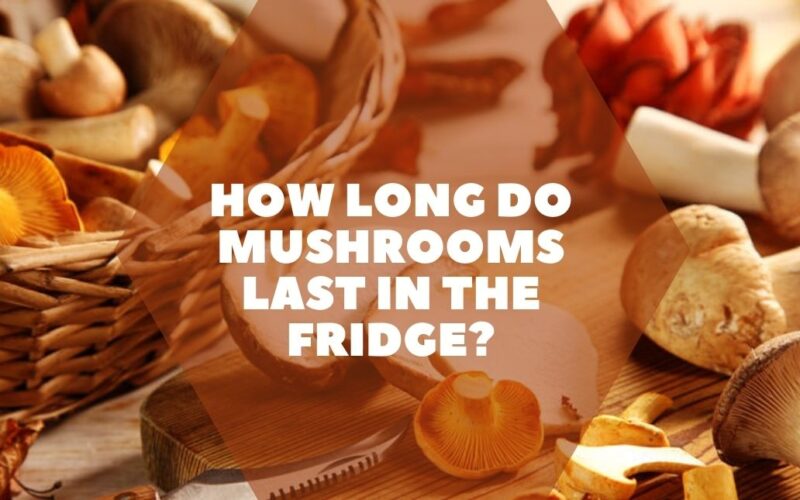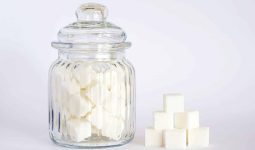Ever wondered how long those mushrooms can stay fresh in your refrigerator? Knowing the shelf life of mushrooms helps you plan meals better and reduce food waste.
Most whole mushrooms will last between 7-14 days in the refrigerator when stored properly.
The exact duration depends on several factors, including the type of mushroom and how you store them.
Fresh whole mushrooms typically last up to two weeks when refrigerated correctly, while sliced mushrooms have a shorter lifespan of only 1-2 days.
Store-bought varieties usually stay fresh longer than wild or farmers market mushrooms.
Proper storage makes all the difference in extending mushroom freshness.
Keeping them in a paper bag can absorb excess moisture and maintain their quality.
Some enthusiasts recommend wrapping them in paper towels, keeping the towels slightly moist for optimal storage conditions.
How Long Do Mushrooms Last in the Fridge?
Fresh mushrooms have a limited shelf life, but proper storage can help them stay fresh longer.
Most whole mushrooms from the grocery store can last up to two weeks in your refrigerator.
The typical lifespan of mushrooms varies depending on several factors:
- Whole mushrooms: 7-14 days
- Sliced mushrooms: 5-7 days
- Cooked mushrooms: 3-4 days
Fresh mushrooms generally last between 3-7 days in the refrigerator when stored properly.
Whole mushrooms typically stay fresh longer than sliced ones, which tend to spoil more rapidly.
The mushroom variety also affects shelf life. Some heartier varieties may last longer than more delicate types.
For maximum freshness, store your mushrooms in a paper bag rather than plastic.
This helps absorb excess moisture that can cause mushrooms to become slimy.
You can also wrap raw mushrooms in paper towels before placing them in a paper bag.
Store this package on a refrigerator shelf rather than in the crisper drawer for better air circulation.
Always check your mushrooms before using them. Signs they’ve gone bad include:
- Slimy texture
- Dark spots
- Strong unpleasant smell
- Visible mold
Using these storage tips will help your mushrooms stay fresh for as long as possible.
Signs Of Spoilage
Knowing when your mushrooms have gone bad is essential for food safety. Here are the key signs that your mushrooms are no longer good to eat.
Sliminess is one of the most obvious indicators of spoiled mushrooms. When you touch them, fresh mushrooms should feel dry and firm. If they feel slimy or sticky, it’s time to toss them out.
Wrinkles and shriveling indicate that mushrooms are past their prime. Fresh mushrooms have a smooth, plump appearance. When they start to look wrinkled or dried out, they’re beginning to spoil.
Discoloration is another warning sign. Look for dark spots, yellowing, or browning that wasn’t there when you bought them. Some mushroom varieties naturally darken over time, but significant color changes often mean spoilage.
Strong, unpleasant odors should not be ignored. Fresh mushrooms have a mild, earthy smell. If you notice a distinctly bad odor when opening the container, your mushrooms have likely gone bad.
Visible mold is a definite sign to discard mushrooms. While mushrooms are fungi themselves, mold growing on them appears as fuzzy white, green, or black spots and indicates they’re unsafe to eat.
Different varieties show signs of spoilage at different rates. White button mushrooms tend to spoil more quickly than portobellos or creminis.
Delicate varieties like maitake or oyster may only last a few days before showing these warning signs.
Tips For Storing Mushrooms Properly
Paper bags are your best friend when it comes to storing mushrooms.
Unlike plastic, paper bags allow mushrooms to breathe while absorbing excess moisture that can cause sliminess.
Never wash mushrooms before storing them. Moisture is the enemy of fresh mushrooms and will speed up spoilage. Instead, clean them right before you plan to use them.
The refrigerator is essential for keeping mushrooms fresh. Store them on a shelf rather than in the crisper drawer, which may be too humid.
Properly stored mushrooms can last between 7-10 days in your fridge.
If you’ve bought pre-packaged mushrooms, consider these options:
- Keep them in the original packaging until use
- Transfer to a paper bag if the container is very moist
- Wrap in paper towels first for extra moisture protection
Quick check for freshness: Fresh mushrooms should be firm, dry to the touch, and free from dark spots or slime. If they smell sour or ammonia-like, it’s time to toss them.
Did you buy too many mushrooms? Cook them first, then freeze! Cooked mushrooms can last up to 12 months in the freezer, giving you plenty of time to use them.
For maximum freshness, avoid storing mushrooms near strong-smelling foods as they can absorb odors easily.
Conclusion
Storing mushrooms properly in your fridge can significantly extend their freshness.
Raw mushrooms typically last 3-7 days when stored correctly, while white mushrooms may stay fresh for up to 10 days.
For best results, wrap your raw mushrooms in paper towels and store them in a paper bag on a refrigerator shelf.
This method helps absorb excess moisture that can lead to spoilage.
Cooked mushrooms have a shorter shelf life of about 3-5 days in the refrigerator.
Always store them in an airtight container to maintain freshness.
Remember to check your mushrooms regularly for signs of spoilage.
Slimy texture, strong odor, or discoloration are clear indicators that your mushrooms have gone bad and should be discarded.
Proper storage is key! Avoid plastic bags or airtight containers for raw mushrooms as they trap moisture and speed up spoilage.
Instead, opt for breathable packaging like paper bags. By following these simple storage guidelines, you’ll maximize the shelf life of your mushrooms and reduce food waste in your kitchen.





